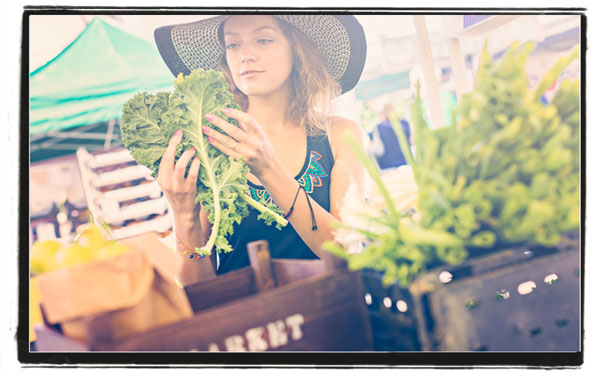
When people consider going vegan, their first thought is often on food. "Vegan food." This thought is usually followed by anxiety, a fear of eating "strange" foods, and possibly even starving to death. But this couldn't be further from the truth. A plant-based diet is highly delicious, enjoyable, and filled with regular, familiar, everyday foods such as fruits, vegetables, whole grains, rice, legumes, beans, nuts, seeds, and so much more! Reprogramming some of your thoughts about veganism is an easy and necessary step to embracing a kinder and healthier way of being: When you think about veganism, think compassionate, kind, cruelty-free, and delicious plant-based foods.
The primary key to moving to a plant-based diet is to think more about the foods you will eat and less about the ones you won't, such as animal meat, eggs, milk, and cheese. While it's true vegans don't eat these things, focusing on them and cutting them out of your diet all at once can cause feelings of deprivation, thus sabotaging your chances for success.
Changing foods slowly and sensibly is often the best way to transition to going vegan. The more foods you try, the more you'll like and be drawn to, and the less room you'll have for all those foods you want to eliminate from your diet. For example, vegans eat meat, just not animal meat. Vegans drink milk (but not dairy milk). Vegans eat cheese (but not dairy cheese). You'll find you can enjoy many foods you've had in the past and maybe even a few you didn't know existed! Think of it as an adventure into the world of plant-based culinary cuisine.
Add additional fruits, veggies, whole grains, rice, and beans to your diet to make things easier. Add herbs and spices that deliver exciting and delicious flavor to your dishes, and upgrade your cooking skills with a vegan cookbook or two that offer up easy-to-follow advice and recipes for new vegans such as Vegan Cookbook for Beginners, Vegan Slow Cooker for Beginners
, and The 30-Minute Vegan
.
While it's true that French fries and Oreos are plant-based, try not to lose sight of one of the benefits of going vegan: being your healthiest. While many "processed" food options are plant-based, making whole, unprocessed food choices a priority is most beneficial.
Enjoying "processed" goodies isn't entirely off the table, and plant-based convenience foods aren't totally out of the picture either. They have their place and can make the transition to going vegan much more manageable. However, remember that moderation is essential when it comes to many prepackaged and processed foods. Learning more about nutrition and your health when it comes to a plant-based diet is a wise move. Check out Vegan For Life by Jack Norris and Virginia Messina, as well as our page on Nutrition.
Reading books on being vegan can offer an enormous amount of information, guidance, and support when you're starting. A plant-based diet is a giant step to becoming vegan. There are other issues near and dear to vegans that you may also want to learn about. Popular titles to get you started include: The Kind Diet:, The Ultimate Vegan Guide
, and How to Be Vegan
.

